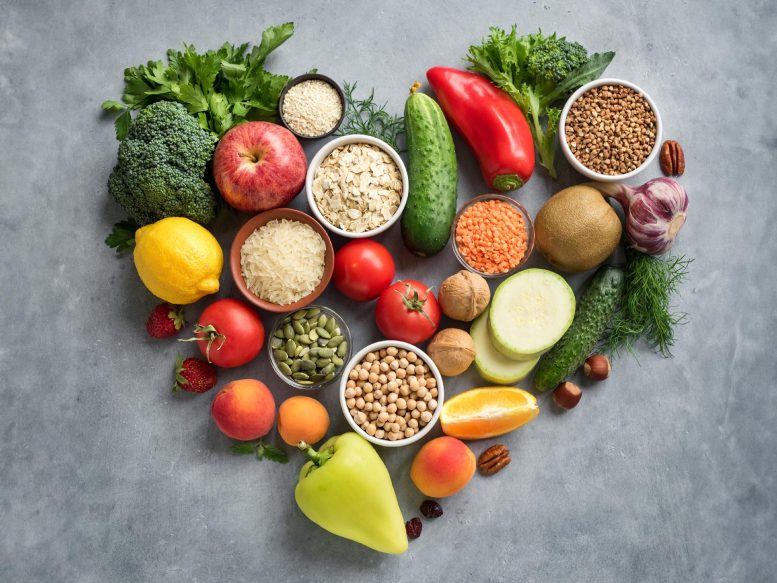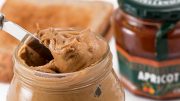
A study with 22 pairs of identical twins found that a vegan diet significantly improves cardiovascular health in just eight weeks. By focusing on twins, the study effectively controlled for genetic and lifestyle variations, revealing that a vegan diet led to lower LDL cholesterol, insulin levels, and body weight, which are key indicators of cardiovascular health. The research underscores the benefits of a plant-based diet, advocating for its adoption for long-term health improvements.
A trial led by Stanford Medicine, involving identical twins and comparing vegan diets with omnivorous diets, demonstrated that a vegan diet improves overall cardiovascular health.
In a study conducted by Stanford Medicine and their collaborators involving 22 pairs of identical twins, it was discovered that following a vegan diet can improve cardiovascular health within a span of just eight weeks.
Although it’s well-known that eating less meat improves cardiovascular health, diet studies are often hampered by factors such as genetic differences, upbringing, and lifestyle choices. By studying identical twins, however, the researchers were able to control for genetics and limit the other factors, as the twins grew up in the same households and reported similar lifestyles.
“Not only did this study provide a groundbreaking way to assert that a vegan diet is healthier than the conventional omnivore diet, but the twins were also a riot to work with,” said Christopher Gardner, Ph.D., the Rehnborg Farquhar Professor and a professor of medicine. “They dressed the same, they talked the same and they had a banter between them that you could have only if you spent an inordinate amount of time together.”
The study was recently published in the journal JAMA Network Open. Gardner is the senior author. The study was co-first authored by Matthew Landry, Ph.D., a former Stanford Prevention Research Center postdoctoral scholar, now at the University of California, Irvine, and Catherine Ward, Ph.D., a post-doctoral scholar at the center.
Twin participants
The trial, conducted from May to July 2022, consisted of 22 pairs of identical twins for a total of 44 participants. The study authors selected healthy participants without cardiovascular disease from the Stanford Twin Registry — a database of fraternal and identical twins who have agreed to participate in research studies — and matched one twin from each pair with either a vegan or omnivore diet.
Both diets were healthy, replete with vegetables, legumes, fruits, and whole grains, and void of sugars and refined starches. The vegan diet was entirely plant-based, and included no meat or animal products such as eggs or milk. The omnivore diet included chicken, fish, eggs, cheese, dairy, and other animal-sourced foods.
During the first four weeks, a meal service delivered 21 meals per week — seven breakfasts, lunches, and dinners. For the remaining four weeks, the participants prepared their own meals.
A registered dietitian, or “diet whisperer,” according to Gardner, was on call to offer suggestions and answer questions regarding the diets during the duration of the study. The participants were interviewed about their dietary intake and kept a log of the food they ate.
Forty-three participants completed the study which, Gardner said, demonstrates how feasible it is to learn how to a prepare a healthy diet in four weeks.
“Our study used a generalizable diet that is accessible to anyone, because 21 out of the 22 vegans followed through with the diet,” said Gardner, who is a professor in the Stanford Prevention Research Center. “This suggests that anyone who chooses a vegan diet can improve their long-term health in two months, with the most change seen in the first month.”
Improving health
The authors found the most improvement over the first four weeks of the diet change. The participants with a vegan diet had significantly lower low-density lipoprotein cholesterol (LDL-C) levels, insulin, and body weight — all of which are associated with improved cardiovascular health — than the omnivore participants.
At three time points — at the beginning of the trial, at four weeks, and at eight weeks — researchers weighed the participants and drew their blood. The average baseline LDL-C level for the vegans was 110.7 mg/dL and 118.5 mg/dL for the omnivore participants; it dropped to 95.5 for vegans and 116.1 for omnivores at the end of the study. The optimal healthy LDL-C level is less than 100.
Because the participants already had healthy LDL-C levels, there was less room for improvement, Gardner said, speculating that participants who had higher baseline levels would show greater change.
The vegan participants also showed about a 20% drop in fasting insulin — a higher insulin level is a risk factor for developing diabetes. The vegans also lost an average of 4.2 more pounds than the omnivores.
“Based on these results and thinking about longevity, most of us would benefit from going to a more plant-based diet,” Gardner said.
The vegan participants (and the omnivores to some extent) did the three most important things to improve cardiovascular health, according to Gardner: They cut back on saturated fats, increased dietary fiber, and lost weight.
A global flair
Gardner emphasizes that although most people will probably not go vegan, a nudge in the plant-based direction could improve health. “A vegan diet can confer additional benefits such as increased gut bacteria and the reduction of telomere loss, which slows aging in the body,” Gardner said.
“What’s more important than going strictly vegan is including more plant-based foods into your diet,” said Gardner, who has been “mostly vegan” for the last 40 years. “Luckily, having fun with vegan multicultural foods like Indian masala, Asian stir-fry, and African lentil-based dishes can be a great first step.”
Reference: “Cardiometabolic Effects of Omnivorous vs Vegan Diets in Identical Twins: A Randomized Clinical Trial” by Matthew J. Landry, Catherine P. Ward, Kristen M. Cunanan, Lindsay R. Durand, Dalia Perelman, Jennifer L. Robinson, Tayler Hennings, Linda Koh, Christopher Dant, Amanda Zeitlin, Emily R. Ebel, Erica D. Sonnenburg, Justin L. Sonnenburg and Christopher D. Gardner, 30 November 2023, JAMA Network Open.
DOI: 10.1001/jamanetworkopen.2023.44457
The study was funded by the Vogt Foundation; the Stanford Clinical and Translational Science Award; and the National Heart, Lung and Blood Institute.








Too many questions to even begin taking this as a fair unbiased study.
What did they feed the Vegans?
What did they feed the Omnivores?
What are the negatives to going completely Vegan? There are trade offs with everything so anyone saying there is no negative to being Vegan is ignorant or lying.
This study does not know or even mention what the long term effects might be.
Who/what funded this study?
And who/what funded the funders of this study?
The list of questions could go on and on.
These questions are mainly answered in the original article, which is referenced, if you are interested. Obviously, a study lasting 8 weeks cannot say anything about long-term effects; however, many people have been vegan all their lives (apart from e.g. mother’s milk). To me, the study definitely seemed interesting.
Eight weeks is a bold — perhaps even reckless — assertion considering the average turnover rate of cells in the body.
Well, that’s what they found. I am not sure how it’s reckless. Heart health here is measured by blood markers, which do change rapidly.
RE: Clyde Spencer
This guy has been a troll on this site for while, always trying to debunk anything that hurts big pharma.
RE: FrequentFlyer
I’ve been (mostly) vegan since about 1992. But I love Pizza! That is the #1 “negative” drawback against being vegan. #2 is all the restaurants want to feed you dead flesh (go to a Chinese/Thai place and ask for a plate of steamed vegies with no “sauce” made with the additive poisons that the food distributors peddle); and supermarkets mostly sell “****” for preprocessed vegi/vegan food; you mostly have to cook or prepare fresh fruits/veggies for yourself. Don’t be fooled into thinking canned or frozen vegan food will suffice, like canned or frozen dead flesh or cheese does. I have found absolutely no drawbacks health-wise; quite the opposite.
I +++LOVED+++ filet minion steak, and Fuddrucker’s hamburgers. After a year, they tasted so very nasty, when I allowed myself a “treat” for being good for a year.
I still love Pizza, IF it is made with good quality cheese. But only a few times a year. Then I suffer like a typical drug-addict from the “hangover” in my body for a week or four. Low energy in general, legs muscles sore when I first start hiking (passes after 5-10 mins). Finally it “passes through” and I feel better again.
Another drawback: When I first became vegan, I spent a year “weaning” myself off dead flesh and then my apparent muscle mass shrank (especially in my arms). If you want to look like “Arnold”, this stage is a drawback. Then my muscles grew back with much better definition and I had +++more+++ strength and endurance, and “look” even better. A much younger lady at the nude beach where I used to hang even complemented me for a “body of a guy in my age group”. I don’t work out (other than a daily 2+ hour hike) or body-build, but I look that way: nothing bulges except muscles, nothing sags.
For those “half educated” folks that say we “need” the proteins in dead flesh, go back to school. Proteins are basically unique to the species and are built from Amino Acids. All plants and animals are made of proteins; when you eat them, the digestive fluids in your stomach break the proteins into the basic amino acids, and then your body takes these aminos to build the specific proteins your body needs. Eating beans, rice and corn for instance, gives you all the aminos your body needs for your specific proteins. Eat some dead flesh, and you may not get the aminos that you specifically need.
I never feel more healthy or have more energy than when I eat nuts and bananas and blueberries for breakfast/lunch, and beans and corn and avocado for dinner.